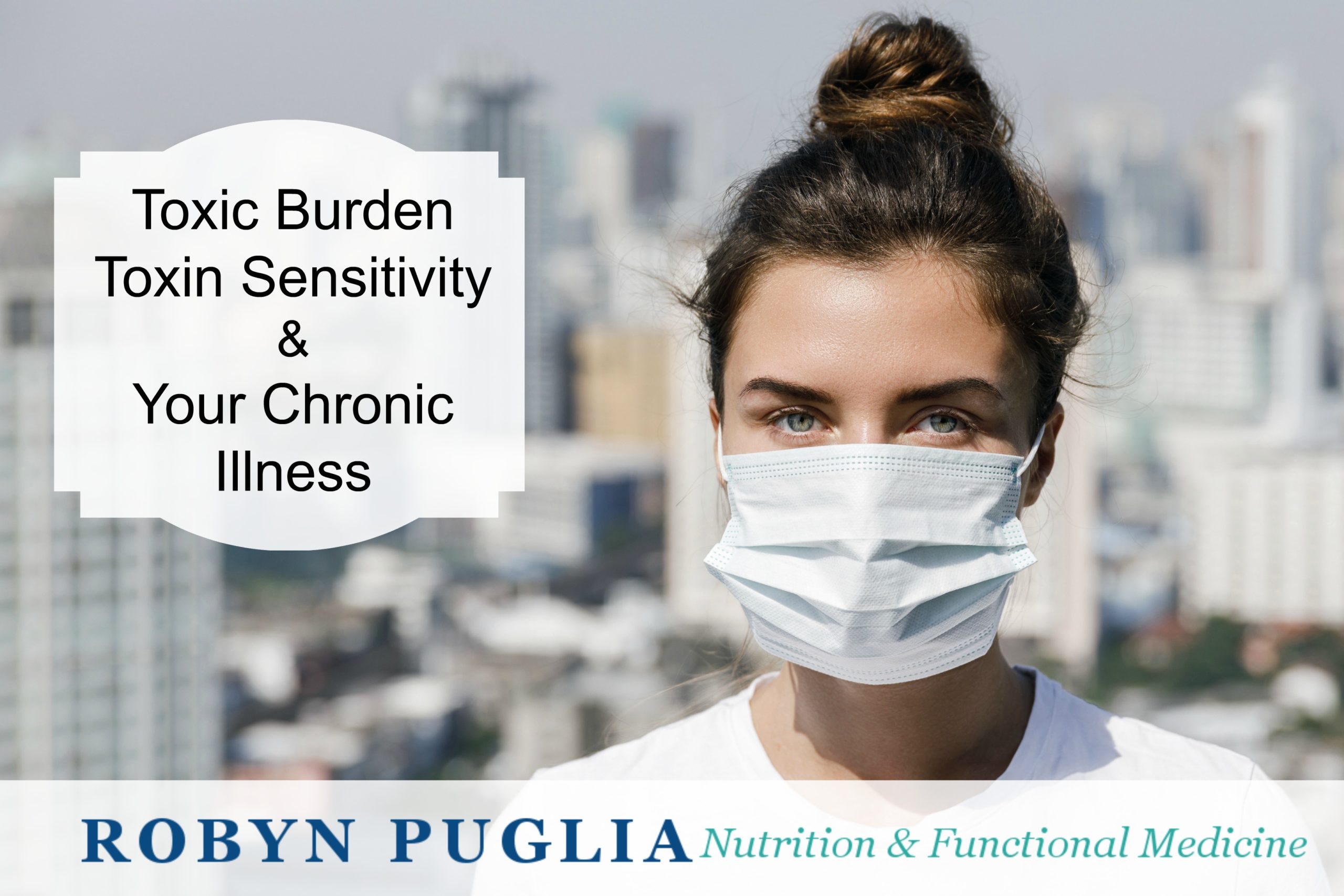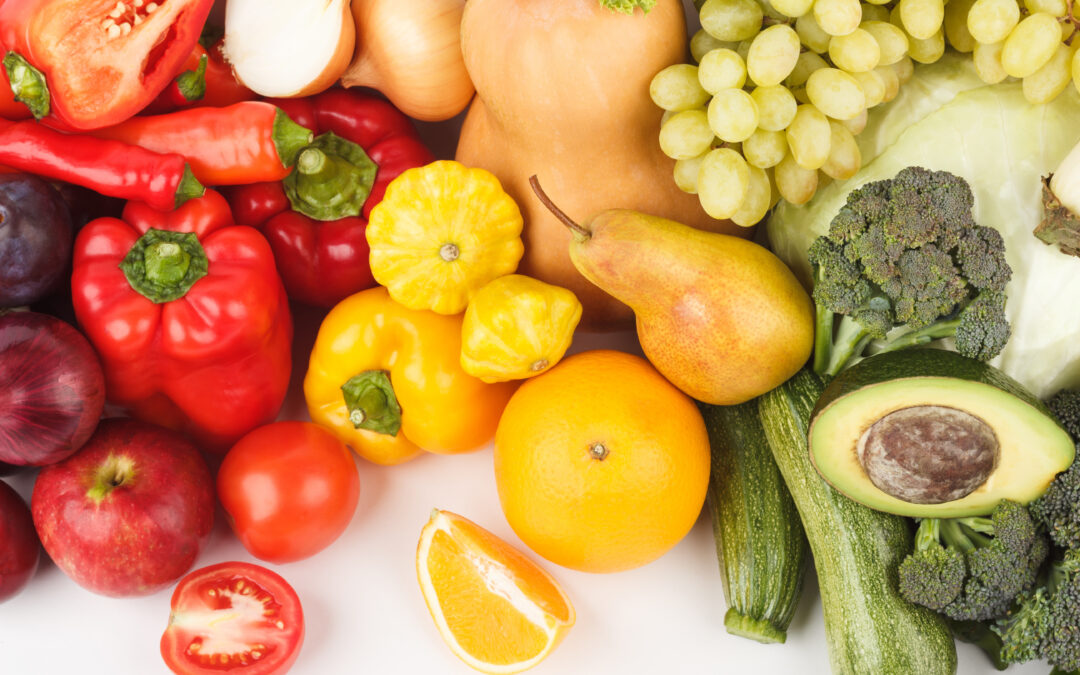What do you think of when you hear the word toxins? Perhaps you picture them on an industrial scale: coal plants pumping out clouds of smoke. But the reality is that toxins are all around us – in our homes, and in our food, too! In part one of this series, I explore what detoxification in the body involves, sources of toxins, and what can contribute to your overall toxic burden.
Modern life is creating a heavy toxic burden, and those of us whose bodies struggle to process them are paying the price. A sensitivity to toxins can result in tiredness, headaches, and health complications. Your siblings might be able to eat gluten and drink several glasses of wine without getting a migraine the next day, but if you’ve always wondered why you can’t do the same – read on!
How Toxins Weigh You Down
Dr Jeffrey Bland, considered the godfather of Functional Medicine, once said there is a 400-fold difference between the people who detoxify the fastest and most efficiently, and those at the slowest end of the spectrum. He was referring to the speed at which hundreds of enzymes work to break down the toxins in your body. I think of this as The Kate Moss Theory of Detoxification – and I’ll use alcohol as an example.
Kate Moss is notorious in the British tabloid media for being a girl who lives a hard-core, rock-star lifestyle. Her ability to party for days on end seemingly without a break is legendary, and she didn’t appear to be slowing down with age. So if, like Kate, you sit on the fast end of the detox spectrum, your body can process and detoxify alcohol very quickly. Though you may not feel your best after a big night drinking champagne, a few hours of sleep and a quick hair-of-the-dog gets you back to normal – just in time for a cocktail at brunch!
On the other hand, perhaps you find that just a single glass of wine on a special occasion makes you feel terrible for the entirety of the next day – or even causes tiredness and headaches for up to a week. The recovery time and intensity after exposure to alcohol is significantly higher on the slow end of the detoxifying spectrum, even when the amount of alcohol itself is small.
Does this mean you’re poisoned?
No. Not in the medical sense anyway.
Is your liver failing?
No.
Is your liver working well to process toxins and wastes?
Unfortunately not.
Is that affecting the way you feel, and the way your body works?
Definitely yes.
Is your body likely to have trouble ‘taking out the trash’ across the board?
Yes, it’s possible your system has a reduced ability to, for example, clear perfumes or paint fumes you breathe in or absorb through your skin. You may also have more trouble with hormones, or sulphites in food.
Your Toxic Burden Is like a Bucket of Sand
When your detox pathway has a slow or reduced function, your body isn’t taking out the trash efficiently, even if you come into contact with what we consider to be a ‘normal’ amount of toxins. The equations below help us understand just how much the toxins can affect your body.
First equation:
(how much ‘trash’ you physically make) + (how much you come into contact with) = your daily toxic load
Second equation:
(daily toxic load) – (daily biotransformation and elimination ability) = net daily accumulation
So what happens if you are unable to eliminate the total amount of toxins you make plus the toxins you take in?
In this case, extra support for your detox pathways could have a profoundly positive impact on your health.
Be aware that it’s impossible for anyone to be completely free of toxins, so if you don’t have the best elimination ability, consider your toxic burden something like a bucket that can slowly fill with sand. Every grain of sand represents a potential exposure throughout your day, and your life. As your bucket fills up with sand over time, it becomes heavier and heavier, and eventually it becomes harder for your body to recover or even maintain normal functions.
An increase in toxins can be a major factor contributing to the rise of autoimmune disease and other chronic conditions. This is also why it’s called toxic burden! Your body becomes overloaded by the accumulative effect of these toxins over time.
Why Are Some People More Sensitive to Toxins Than Others?
Each individual has different levels of sensitivity to toxins. How susceptible you are is dependent upon how readily your body transforms and eliminates toxins. You may even have genetic mutations, such as MTHFR, that can cause the enzymes that process toxins to work more slowly, resulting in toxin sensitivity.
Of course, nothing in the body works in isolation, so some other factors that may play a role in whether or not you’ll be more sensitive to toxins include:
-
- Struggling with a gut microbiome imbalance
- Eating a high sugar, low protein diet
- Suffering from stress
- Having an underlying infection
- Experiencing past trauma
- Having nutrient deficiencies
Overall, we give genetics far more credit than they deserve when it comes to disease development. It’s estimated that 90% of chronic diseases are caused by non-genetic factors. However, there are definitely some biological differences in chronic disease patients that may make their bodies less effective at detoxifying, or more likely to develop a disease.
If you’re genetically more susceptible to toxins, this is typically because you have slower processing times in one of the five detoxification pathways – as described in part one in this series on detoxification. Your liver, kidneys, skin, or digestion probably aren’t eliminating toxins as quickly as they should, and could use a little extra support.
I recommend having genetic testing done with a qualified professional who can help you fully understand the results. Without accurate analysis, genetic testing can be confusing and even scary!
How Toxins Contribute to Chronic Inflammation
There are two main ways that environmental toxins contribute to autoimmunity.
DIRECTLY
A chemical (known in immunological terms as a hapten) is fairly small compared to the proteins in your body or food – so small that we cannot make antibodies to deal with it. But these chemicals can attach themselves to the tissues in your body, and when this happens, a new molecule is formed, made of the combined protein and chemical – a hapten-carrier adduct.
Even though part of this new molecule is actually made of our own tissue, our immune systems no longer recognise it as ‘self’ due to the extra part attached – our immune system knows that no tissue in our body looks like that. So the chemical has now created a perfect target for an immune reaction, and the resultant inflammatory cascade may lead eventually to full blown autoimmunity: especially if you have reduced detox capacity, genetic predisposition, any stealth infections, leaky gut, or other factors that can lead to unusual or extreme immune responses.
Do note that with a direct response, you can experience a large immune reaction to a very small amount of the triggering chemical. The inflammatory response is not dose dependant.
INDIRECTLY
Environmental toxins or poor detoxification can also result in a predisposition to autoimmunity. A high body burden of toxins can lead to increased inflammation, and increased oxidative stress. The toxins themselves are pro-inflammatory and oxidative just from being in your body, and your liver also creates significant oxidative stress as it processes waste.
Inflammation is part of the basic makeup of autoimmunity, and elevated oxidative stress is associated with an increased risk of autoimmune disorder. On top of that, elevated oxidative stress depletes antioxidant reserves in your body including zinc, selenium, and glutathione – all nutrients that are extremely important for keeping the immune system balanced and operating healthily. Lowered levels of any or all of these antioxidants can hinder the immune system from responding appropriately – also a hallmark of autoimmune disease.
With the indirect response, the level of chemical, or the total toxic burden, is more closely related to the impact on the body and immune system.
Autoimmunity: The Result of Inflammation Caused by Toxins
The term biotransformation is used to describe your body’s ability to metabolize toxins and render them inert so they can successfully be eliminated. Your body is able to secrete undesired materials through sweat, urine, and feces. Doing this biotransformation work effectively takes a lot of energy and nutrients!
When there is a buildup of toxins, or detoxification processes are hindered or limited, widespread inflammation occurs throughout your body. Inflammation causes your immune system to be set on high alert. Chronic inflammation can lead to the development of many diseases.
Basically, when you have a heavy toxic burden, your immune system is constantly running. An immune system on high alert contributes to additional inflammation – and the whole sorry cycle can turn into a runaway train called autoimmunity. Autoimmunity is when your overactive immune system attacks the healthy tissue it mistakes for an invader.
Elimination of toxins from the body is one of the foundations of good health. Anyone who has a chronic health issue should at the very least consider having their immune system assessed. If you have an autoimmune disease, improving your body’s ways of detoxification can be a way to reduce systemic inflammation and oxidative stress. Additionally, identifying if a particular environmental toxin is actually an autoimmune trigger can help to complete the jigsaw puzzle of reclaiming health.
If you’re concerned about your toxic burden, or if you would like my help getting back on track with your health and autoimmunity, check out my program The Foundations of Health, where I walk you through finding the foods that work for your individual body, addressing issues in the gut, changing your daily lifestyle habits to support health, and – of course – supporting detoxification. To change the way you relate to your health, sign up today!
If you would like to get in touch to organise nutrient deficiency testing or discuss how to address your on-going issues, please drop me a line here.
And if you’d like to stay up to date with my new blogs, recipes and recommendations: Sign up for my newsletter!
In part three of this series, we’ll explore the best ways to reduce your daily toxic load – and therefore your toxic burden – and the best ways to aid detoxification and heal your body.






